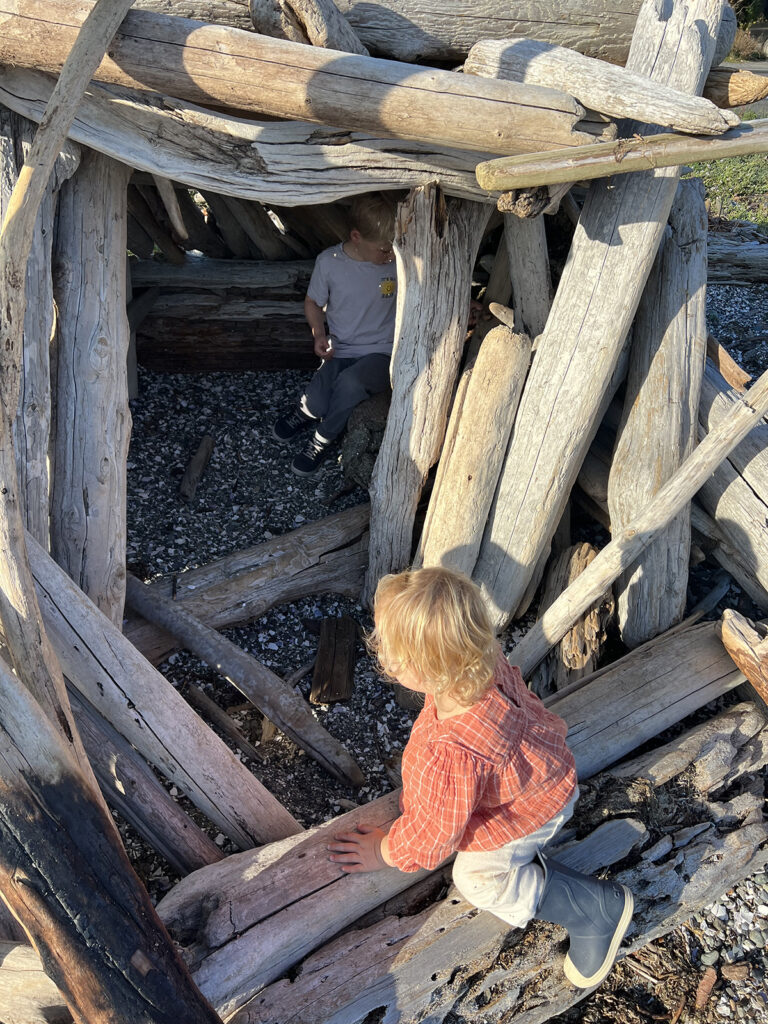Lessons from a Classic Adventure Parenting Memoir
Cover photo courtesy of Olivia Dugenet
By Olivia Dugenet
“Caprice” was a 25-foot boat with a cockpit, engine room and just enough space to sleep Muriel Wylie Blanchet and her five children. They spent entire summers on “Caprice” back in the 1920s and ‘30s, exploring the waters and wild shores of British Columbia.
Blanchet’s book “The Curve of Time” has become a classic adventure/travel memoir. A widow and independent woman exploring the wild world alone with five children in the early part of the century—this took a sort of subversiveness that shines in her writing. She was both stern and playful, adventuring like a wild young spirit herself while also taking up the role of serious leader and parent. Her stories show how she simultaneously learned from and taught her children how to understand the world.
These five core outdoor parenting ideas embedded within the book offer valuable insights:

- Everyone contributes. Even young children had real responsibilities, and life on “Caprice” depended on everyone pitching in. While older kids were reading charts, watching the compass and scanning for reefs, the youngest boy was given a whistle to blow in the heavy fog—sounding for echoes and helping steer clear of cliffs.
- Courage coexists alongside vulnerability. They didn’t seek out adventure or aim to conquer anything, and they intentionally practiced what the explorers of old called “exercising due care.” Still, adventure found them. They encountered bears and cougars, near falls, near crashes, extreme cold and dangerous rapids. After one particularly challenging moment, one of the older children said, “You were scared, too, weren’t you, mummy?” Neither denying her fear nor giving in to it, Blanchet winked at him. “Weren’t we sillies!” she said.
- Everyone plays. Blanchet took youthful delight in having fun. She rocketed down slippery granite slides with her kids and splashed into crystal lukewarm pools—this is how they took baths and washed their clothes.
- Curiosity is a virtue. For Blanchet and her children, the world was a fascinating place full of mystery and discovery. The group regularly paused, pivoted, or changed plans to follow the thread of someone’s curiosity. When they found some strange new wonder, they explored it, wrote about it in their journals, and looked it up in the Encyclopedia Brittanica when they returned home in the fall.
- Community is important. On their travels, Blanchet and her children met people from all backgrounds and perspectives, built lasting friendships, learned to ask for help when necessary, and gave help whenever they could.
- Ponder big ideas. As suggested by the book’s title, Blanchet studied theories about time and other complex ideas. She continually sought wisdom and understanding, bringing depth and beauty to her life and writing.
These ideas are woven through my own experience of parenting in the outdoors. I let the kids make and break camp in the backcountry, even when they pitch the tents a little crooked or don’t pack up precisely the way I showed them. If they take their inflatable sleeping pads into an alpine lake, I am more likely to join them for a float than to scold. So long as the kids show they’re practicing required safety strategies, I let them get out ahead of me and lead, even when it makes me nervous. We talk about how being outdoors away from devices changes our experience of time and being in the world, and we carry those conversations back to the city and into our everyday lives. Blanchet’s stories showed me, years before I even became a mom, how time spent together outside fosters wisdom and strong connections between children, their parents, and the wider world. //
Olivia Dugenet is a Spokane writer and mom who has learned a lot from exploring the outdoors with her children. She and her teenagers are excited to backpack routes in Washington and Canada this summer.













